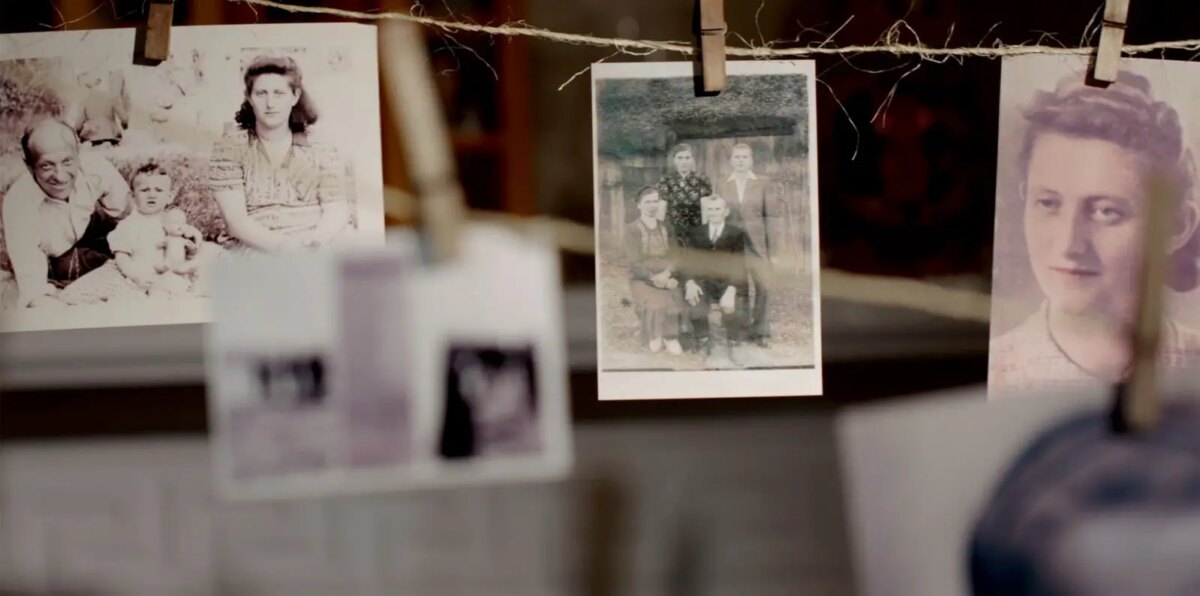
Christopher Wells’ feature documentary Stories For My Children’s Children: Lessons From The Holocaust is a poignant and deeply personal series of recollections passionately told by Sarah Rolnick, the daughter of two Holocaust survivors, about her parents’ experiences during this dark time in history. In a one-person film, Sarah tells about her family’s past and relatives while reconstructing how her mother and father survived and emigrated to the United States.
With detailed information, photos, documents, historical items, and her fact-finding evidence, Sarah relays the story of how her mother’s family hid in a barn for two years after the Nazis took over Poland thanks to farm owners who were willing to take the risk—and unimaginable hardship—as well as her father’s first wife and children who were shot and killed when he was separated from them and sent to a concentration camp.
Besides the incredible stories of survival and inconceivable grit needed to survive at all, Stories For My Children’s Children offers an insight that is not just shrouded in glory but also provides an incredible perspective and feeling of how one existed in their dailiness, routine, and ability—humans acting in the preservation of humanity in the face of hatred, ill-will, fear, and terror.
“…deeply personal series of recollections passionately told by Sarah Rolnick, the daughter of two Holocaust survivors…”
Director and producer Christopher Wells’s two decades of experience as a filmmaker celebrating the histories of families and communities play a significant role in the presentation of Stories For My Children’s Children through seamless editing and linear storytelling. There are a great many details that allow Sarah to construct the parallels of her parent’s survival while keeping a viewer’s attention. In addition, Sarah’s eloquent tone and knowledge of her Jewish heritage and existence are fascinating. She offers an education to Jewish tradition and beyond while offering a memory she wishes to live on and pass on to her great-grandchildren. It’s a simple yet priceless gift.
The contrast of Sarah’s mother’s hiding on a Polish farm whose family would stay connected to her decades beyond the Holocaust is much easier for her to tell than her fathers, who survived a concentration camp due to his vocation in wood construction skills. He lost a son and his first wife and suffered intolerable consequences. When Sarah’s parents met, their marriage happened immediately, and although she was born abroad, emigrating to the U.S. allowed the family to create new roots and grow. Sarah’s mother, Guinevere, was forever in debt to the family who hid them for two years. Her father, Roman, hid his grief most of his life after losing his first wife and family to the Nazi regime.
Sarah reveals her travels to Poland to meet the children of the parents who hid her mother and learned how her mother was in debt to them for her life and was always helping them because, under the rule of communist Russia, the citizens of Poland had very few resources revealing how generations managed to take care of each other—something that is somewhat lacking in the 21st century. In addition, Sarah praises Oscar Schindler for his work, which was acknowledged by her visits to museums and memorials as her father was on Schindler’s list. It is here where she found family names piecing together her father’s first marriage that was destroyed by the Nazis, realizing there was only one image that survived, which triggered a great deal of pain for her father.
Wells hopes that Stories For My Children’s Children will foster a more compassionate and empathetic society, saying, “We must never forget the immense suffering endured by all those affected by the Holocaust. This film is a testament to their struggles, ensuring their stories remain ingrained in our collective memory.” While Stories For My Children’s Children is mostly a static film, its story is one of impact, courage, and strength that is now permanent and documented for those to know and not to be forgotten.














